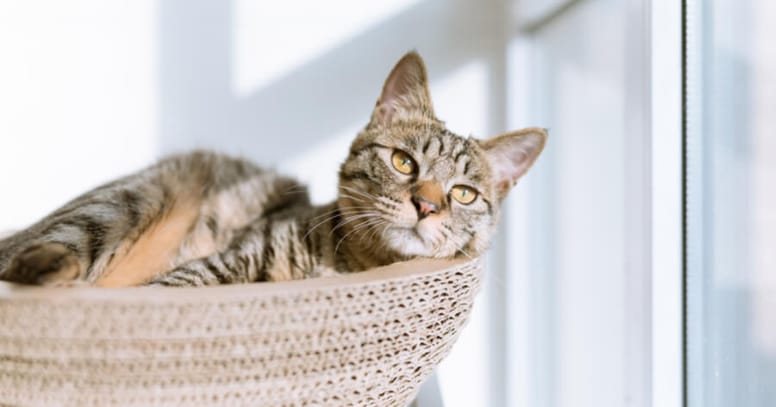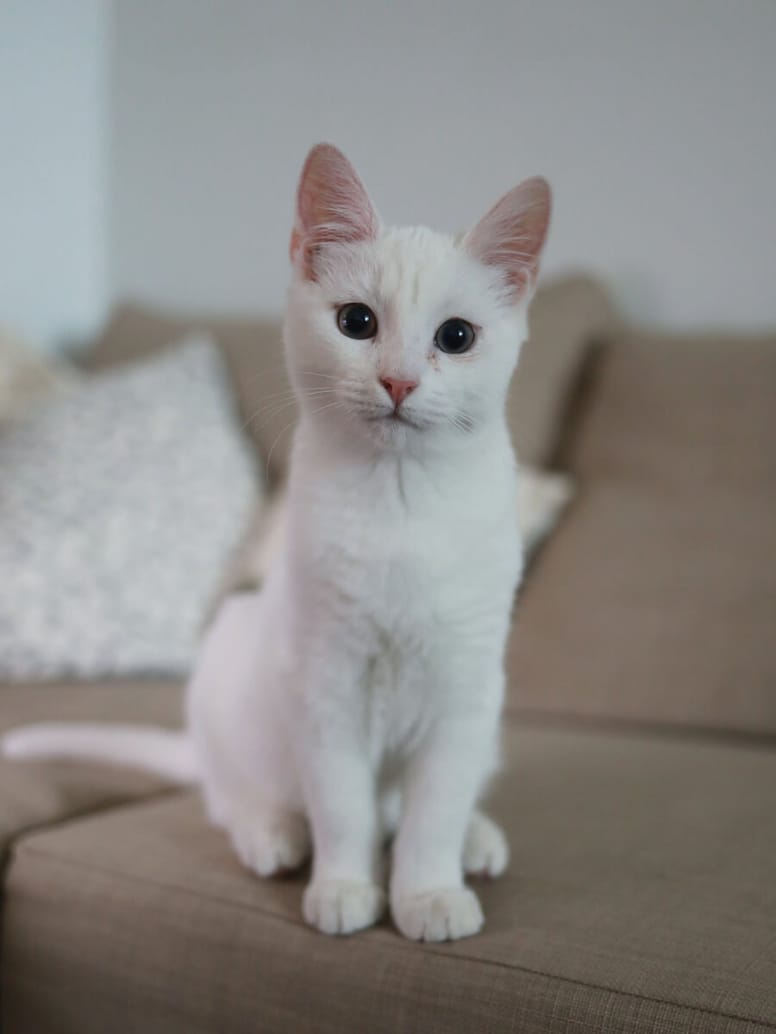Many cat owners have wondered if their cat is a psychopath and it’s hardly surprising when you think about the characteristics of a psychopath. Someone who always looks bored and expressionless lacks empathy, constantly manipulates you to get what they want, lashes out at you for no reason and generally walks around with an air of superiority all the time.
Like it or not, your cat is probably a psychopath.
Are cats psychopaths?
Cats are generally thought of as being the more sinister of our favourite four-legged friends. While dogs will do anything for their humans and always eager to please, cats are more interested in doing their own thing and pleasing themselves. But does this make cats psychopaths? A survey by a graduate student at the University of Liverpool explored why people think cats are psychopaths. The respondents said the aggression their cats show towards family members, bullying other pets and stealing their canine sibling’s bed, was why they believe their feline is, in fact, a furry psychopath.

While it may be hard to think of your beloved feline friend as anything other than cute, a study by the University of Sussex reveals that, just like psychopaths, cats have the capacity to manipulate their humans to get what they want. A dog may give you puppy eyes and hope you will give in, cats are far more deliberate in their quest to get what they want.
Why do we think cats are psychopaths?
One of the main reasons is manipulation.
Cats have two types of purr. One is just their regular cute purr. But the other is far more devious and deliberate. When a cat wants something, whether it’s food or to be let in or out of the house, they will make a high-frequency purr that’s similar to the cry of a human baby. This is called a soliciting purr. Cats have learned and adapted to be able to effectively take advantage of the sound that we are genetically wired to react to. The researchers at the University of Sussex played both types of purrs to volunteers and the results spoke for themselves.
“When we played the recordings to human volunteers, even those people with no experience of cats found the soliciting purrs more urgent and less pleasant,” lead researcher Dr Karen McComb told the BBC.
Do cats love their owners?
If you are just getting your head around the idea that Whiskers is actually a chief manipulator, prepare yourself for more surprises. Manipulation is just one of the psychopathic traits your cat exhibits. While there’s no doubt that your cat enjoys cuddles and strokes with you, there is research to say that no matter how much we want to believe they love us, the love between cats and their owners is just not reciprocated. Scientists have come up with evidence they say shows that cats couldn’t care less about their owners.
Sorry.

Daniel Mills, Professor of Veterinary Behavioural Medicine at the University of Lincoln’s School of Life Sciences decided he would explore whether cats show signs of separation anxiety when left by their owners. He put 20 cats in an unfamiliar environment to see what would happen. Some were there with their owners, some with strangers and others were alone. The study found that the cats showed no real attachment to their owners. He told The Telegraph: “[But] the results of our study show that… what we interpret as separation anxiety might actually be signs of frustration.”
But…
It’s worth remembering that dogs are used to their owners taking them to new places. Cats are far more territorial and might only leave the house to go to the vet. What appears to be indifference to their owners, might just be overwhelming anxiety about a new and unfamiliar environment. This could be an example of how we tend to judge cats on human rather than cat terms.
Why is my cat a psycho?
You can probably blame your cat’s psychotic tendencies on evolution. Cats share personality traits with their big cat cousins, the lion. For instance, your cat will likely show traits of being anxious, timid, excitable, aggressive with other cats and towards humans. This is just what lions are like too. But we also compare our cat’s behaviour to that of dogs. Just as us humans have shaped the physical appearance of dogs over time, we’ve also bred them to be attuned to human social cues.

Dogs pull back their mouths into something that dog lovers like to think is a canine smile. They also hang their heads in a way that makes them look guilty or raise their brows to give them that adorable cute puppy face when they want attention. Cats don’t do anything like this. But cats don’t have the facial muscles to make different expressions. Perhaps your cat isn’t a psychopath after all. They just exhibit emotions in far more subtle ways than you and your canine.
Are cats really psychopaths?
Could your cat be a furry psychopath? Possibly. But perhaps our feline friends are actually a far more complex and sensitive animal than us humans give them credit for. Either way, it’s always best to be on your guard and not let them convince you to do anything you don’t want to. Now Whiskers, did you want some more treats?



